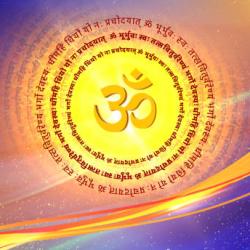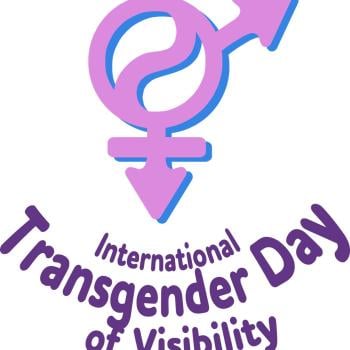
Humans have long been drawn to space as part of our search for meaning, significance and security. But what if space could be the source of our salvation?
It is this question that led Brandon Reece Taylorian, widely known by his mononym Cometan, to start a new religion: Astronism.
From astrology to astrotheology, from questions of how to practice religions ensconced in Earth’s realities and rhythms to the context of outer space or life on other planets to the creation of new religious movements, spirituality and space exploration have long been intertwined.
It is Astronism, perhaps, that has taken the relationship between outer space and religion to its logical limit. At the age of 15, Cometan began to craft an astronomical religion that “teaches that outer space should become the central element of our practical, spiritual, and contemplative lives.”
“From my perspective, how religion and outer space intersect is crucial to understanding the future of religion,” Cometan, who is also a Research Associate at Lancaster University in the United Kingdom, told me. “Outer space is the next great frontier that will reshape the human condition, including our religions.”
To that end, Cometan has contemplated how space exploration might produce new forms of insight, revelation and spiritual experience.
“The further we dare to venture beyond Earth, the more our beliefs about God and the universe will transform. I think that we need new and bold religious systems that will inspire our species to confront and overcome the challenges of the next frontier,” he said.
“As an Astronist, I define outer space as the supreme medium through which the traditional questions of religion will be answered.”
In this edition of “What You Missed Without Religion Class,” I feature a Q&A with Cometan about Astronism and what we might have to learn about religion – and how we define and study it – through his experience founding a new tradition drawn from the stars.
Not everyone founds a new religion. What is your background and how did you come to found Astronism?
I was born in Preston, Lancashire in the north of England.
My parents split when I was four years old, and I spent quite a lot of time with my paternal grandparents. They were traditionalist Catholics in the 1970s and early members of what later became known as the Society of St Pius X, a traditionalist Catholic fraternity. So, I grew up in an environment with strict religious dogmatism, where we weren't really allowed to ask questions. There was sort of no world that existed beyond Catholicism.
When I got to university, I realized there are so many more different types of people in the world with different beliefs and I started to interact with them. Muslims, atheists, and people with radically different upbringings to me. It opened me up to the world and then I had to decide what my identity was going to be.
That’s when I started to look to the stars.
From the time I was 15, I had also been writing mystery books. The main character reflected me, and I wanted him to have his own philosophy as he went through these mysteries. I was drawn to outer space as a source of spirituality and as a mediator between God and humanity, in a way so very different from what my grandparents believed. That philosophy, which was originally fictional, became a real-life philosophy, and then it turned into a religion—what later became Astronism.
In broad strokes, what is Astronism?
Astronism is what I call, in layman’s terms, a “space religion.” It is also based on a worldview I call “cosmocentrism.” Either way, it is the idea that the astronomical world is central to our spiritual lives. It's our way of connecting to a higher power. We believe that humanity will expand into outer space and it is through space exploration that we will achieve salvation, which we call the transcension.
In the first Astronist book—The Omnidoxy—I muse about these concepts in more detail, along with the concept of panentheism, which is the belief that God exists outside the cosmos, but also interpenetrates it. We believe God is guiding us towards reunification in and through the cosmos.
The beliefs, the words, really everything that has come to be Astronism came from my experience. So, in a way, this is my personal religion that I am making public for other people to be part of, to reshape, maybe even add their own ideas and beliefs.
I've spoken to many Astronists and while there are certain fundamentals that they agree with, they may practice it in a different way than I do. Sometimes it's hard to let go of my beliefs, my positions. And for a long time, I was trying to craft and protect it. But now, I've sort of let it go, put the ideas out there to see whether it resonates with people—fellow philosophers and quirky people all with slightly different versions of Astronist ideas and beliefs.
Ultimately, it's a digital religion. I founded it in 2013, so Astronism has never really known anything other than the digital world.
But that's how the world connects today, isn’t it? I don't see how it could have happened any other way. It seemed right that it was a digital religion first, yeah, and then hopefully we'll become more physical, you know, with buildings and all these other things later.
How has your experience with the academic study of religion shaped the process of creating Astronism?
Astronism has been heavily shaped by my academic journey. I first studied business and marketing, which has served me well as I’ve marketed Astronism.
Then I went on to do a master’s in religion, culture, and society here in Preston. It was studying religions but looking at them critically. That allowed me to reflect on Astronism critically as well.
Then I started my doctorate, focusing on the field of religious freedom. I became very passionate about that, because I wanted to understand the persecution other new religious movements are facing. I worried that perhaps an Astronist in the future may be discriminated against for what they believe.
You claim to have created a “religion” and not just a philosophical system. How do you delineate between and define the two?
At the start, I very much thought of it as a philosophy. If you go back to some of my early writings, I can be quite critical of calling it a religion.
Things have changed since then. As it’s developed, I felt calling it a philosophy didn't really do it justice, because there was more to it. Central to me was the development of an eschatology and a doctrine of salvation, which felt much more like a religion than a purely philosophical posture.
Today, I tend to call it a “space religion,” because I see it as a very specific type of religion. Across time, we’ve always had a relationship with outer space. We've always had that draw, that sense of awe, that wonderment about the stars, and that has influenced how we think about God.
What makes Astronism different is that we are mixing religious doctrine and practice with outer space exploration and astronomy.
The public might draw comparisons between Astronism and other movements like astrotheology, astrology, or even Scientology. Do you invite those comparisons or distance Astronism from them?
I get this question a lot, especially about astrology. What I always say is that I see Astronism and astrology as cousins. They exist within the same family of religions. I think what distinguishes Astronism from astrology is its doctrine of salvation, transcension, which astrology doesn't have.
Astronism is also related to lesser-known movements like Cosmism—a philosophical and cultural movement that emerged in late 19th and early 20th century Russia. In fact, I see a direct lineage from Cosmism to Astronism. So, I'd maybe call Cosmism our brother and astrology our cousin.
In terms of Scientology, I acknowledge the comparisons between the fictional origins of the two religions. I think that's just a matter of a person being creative and I don't think there's anything wrong with that.
Scientology, by definition, is not really a space religion, but more of a UFO religion. The only thing that might connect us is the intergalactic theology that Scientology has. But I think Scientology is more removed from Astronism than astrology or Cosmism.
As a “space religion” and as a digital religion it feels you crafted Astronism to be a religious movement for the present moment. Would you agree?
In my writings, I talk about this idea of “middle humanity.” Although we were aware of outer space and appreciated its vastness in previous centuries, we are only now developing the capabilities to get out there properly, as science fiction imagined we could.
We are in this situation between earlier humanity and a humanity that fully embraces its endeavour to the stars. We tend to romanticize it, but it won’t be easy; it’s going to be very hard. There will be struggles. There will be death. We will be pushing the frontier and doing so always brings struggle and death.
Being part of middle humanity is very hard in a way. So is being an Astronist. Whereas Christians can look back to Jesus and their retrospective salvation, our salvation as Astronists lies in the unknown future. It’s very much a prospective salvation. We don't have our salvation yet; our salvation is in the future. I can't even promise we will get there.
This is what I describe as the “coldness” of Astronism. There’s a promise, in the stars, but there is also the harsh reality of space and the challenges that face us as middle humans. We still need to do our own saving. God will help us. God guides us. God is working with us. But ultimately, in Astronism, space exploration is the only way to save ourselves.
It’s not always rosy, but there’s hope.
8/2/2025 2:20:32 PM





